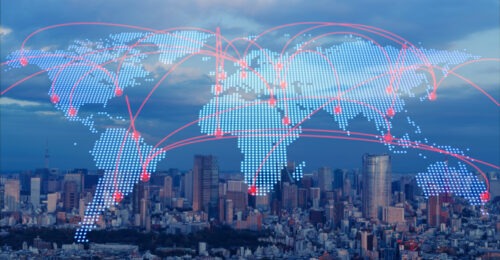Companies, meeting planners and attendees across the board are excited for the restart of in-person meetings in 2023. But as the meetings industry comes back with a vengeance, it is important for meeting planners to prepare for the unexpected.
Smart Meetings spoke with Ralph Failla, director of client leadership at Inspira Marketing Group, to get some insight from his over 15 years of crisis management experience and how meeting planners can be prepared for all possibilities during an event.
Getting Ahead of the Crisis
Many meeting planners can probably appreciate Failla’s own personal mantra: aim to prevent a crisis before it happens. “[You’re] thinking through all the things that could possibly go wrong, not that you’re going to know everything and/or get everything, but it’s thinking through those things as they could go wrong,” he said.
Failla pointed to vehicle contingencies as an example of the importance of being prepared. “Being on the road and touring a lot and understanding that flats are going to happen, accidents are going to happen, breakdowns are going to happen,” Failla said, adding, “it’s just having your partners in place for those instances.”
Prepare for Cancellations and Postponement
No one likes to cancel events, but being prepared for a cancellation could save meetings planners a lot of time and stress.
Read More: What Happens When Fear Majeure Is Used to Postpone or Cancel an Event?
“Best practice is to just make sure you’re covering yourself within that force majeure…and making sure …your investment isn’t lost.”
A Force of Nature
For meeting planners preparing for outdoor events, Mother Nature can be one of the most expected factors to consider. Prepare for extreme temperatures such a keeping attendees hydrated in the heat or making sure your space has heaters for cold weather.
“The one that always gets me is wind,” said Failla. “You can’t predict it. And it just comes in so fast and can just destroy everything in a moment.” Wind gusts can flip tents and cause major damage. preparing with weights, ballasting and alternative locations in mind.
Digital and Analog Experience
An important aspect that could be impacted by the state of the weather is the event’s technology. Failla points to how important Wi-Fi is to the integrity of an event but warns meeting planners to consider a contingency.
“If the Wi-Fi goes out or the tech goes out, you’re kind of left sitting on your hands,” he said. Failla recounted one event when his team created a selfie station after thunderstorms knocked out power at an event. “I think it’s important to create analog as well as digital [experiences]. The digital can be the main experience but make sure you have a backup, too.”
Staffing Shortage
One factor that is being felt across industries is ongoing staffing issues. Not having enough staff could heavily impact your event.
Read More: Navigating the Bus Driver Shortage
“I have experienced a higher percentage of no calls, no shows,” Failla said. His rule of thumb is to request and budget for 20% more support because there’s a high probability you’re going to need them. If you do have extra help, you can use them for more security or as a safety officer.
Keep Calm, Event On
Practice makes perfect. Crisis management is a trial and error situation. One quality that is essential to a planner’s toolbelt is having a cool, even-keeled persona.
“I try to keep everybody calm and I don’t get frantic. I think that’s really, really important. That translates down to every single person you touch, and it just amplifies the situation even more.” Failla advised planners to appoint someone on the team to help manage any crisis that may arise, “You have that peace of mind so when stuff happens, you’re not alone out there.”





